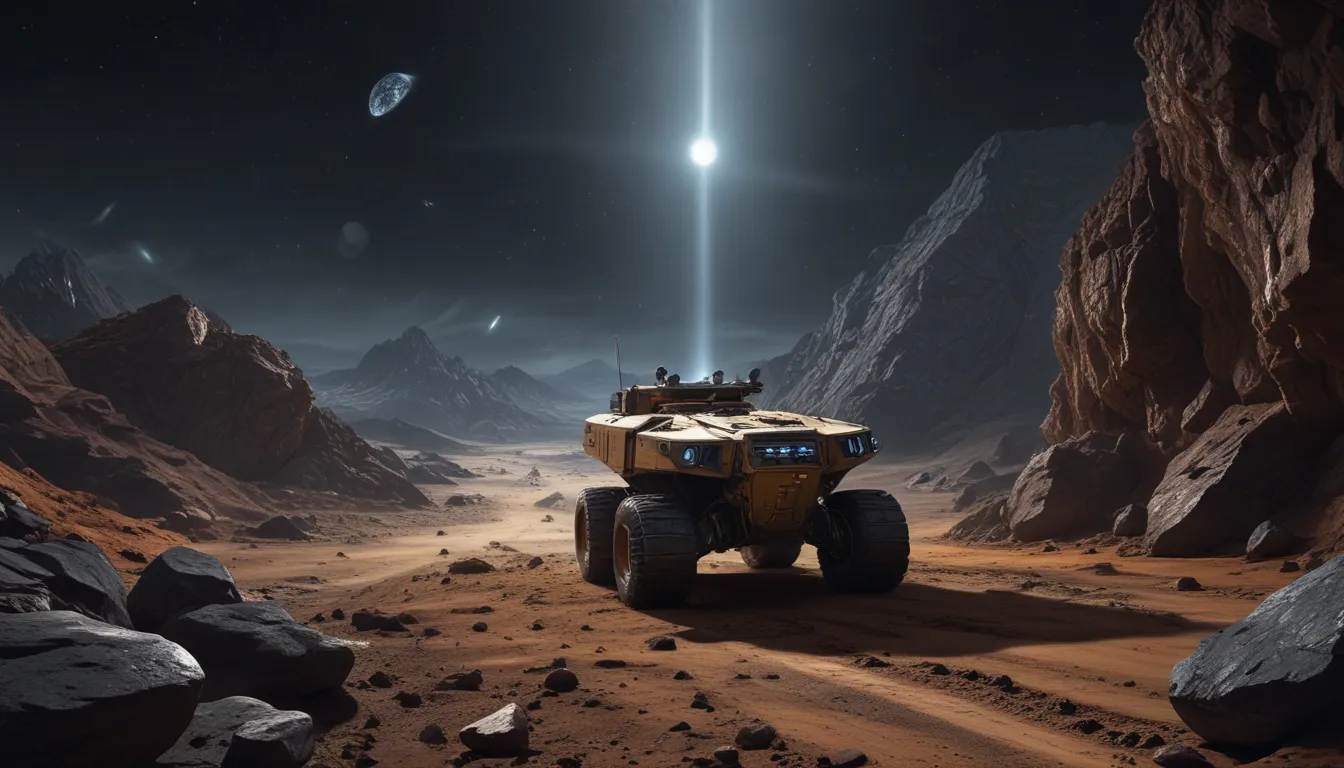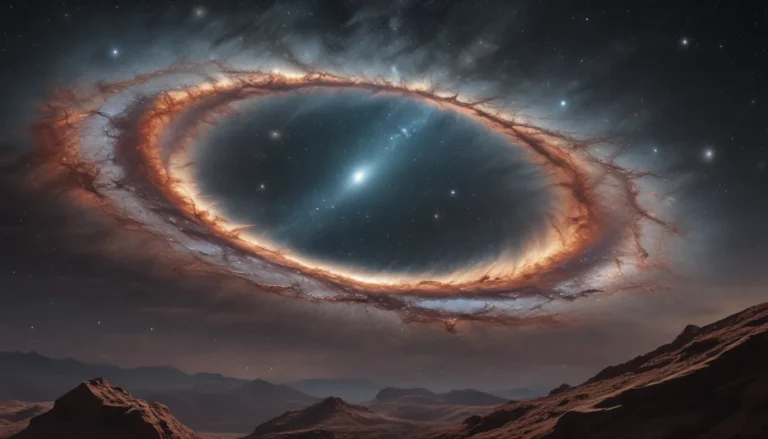The pictures we use in our articles might not show exactly what the words say. We choose these pictures to make you interested in reading more. The pictures work together with the words but don’t take their place. The words still tell you the important facts.
Space exploration has always been an intriguing subject, capturing our imagination with its vastness and mysteries. However, what if I told you that the concept of mining in outer space is no longer just a distant dream? Yes, that's right! We have entered an era where extracting valuable resources from celestial bodies is becoming a tangible reality. The realm of space mining technologies is on the brink of revolutionizing how we gather resources and explore the universe.
Exploring Space Mining: An Exciting Venture
Space mining, also known as asteroid mining, involves the exploration and extraction of valuable resources from celestial bodies such as asteroids, moons, and planets. This innovative concept has the potential to open up new industries, drive economic growth, and promote sustainable resource utilization.
Unveiling the Wealth of Asteroids
Asteroids are believed to contain vast reserves of valuable minerals like platinum, gold, and rare earth elements. These celestial bodies present a promising opportunity for space mining ventures, offering a potential goldmine of resources.
Mapping the Celestial Landscape
Scientists and space agencies are actively engaged in mapping asteroids to identify their composition and potential mining targets. Through sophisticated remote sensing technologies and telescopes, researchers are gaining valuable insights into the wealth of resources available in space.
Harvesting Water on the Moon
The discovery of water on the moon has opened up new avenues for mining and utilizing it as a valuable resource for future space missions. From providing drinking water for astronauts to producing rocket fuel, water on the moon holds immense potential for space exploration.
Pioneering the Space Mining Frontier
In 2012, Planetary Resources made history as the first private venture to announce its intention to mine asteroids. The company's mission is to develop cost-effective space mining technologies, paving the way for a new era of extraterrestrial resource extraction.
Navigating Near-Earth Asteroids
NASA's OSIRIS-REx mission is designed to collect samples from the near-Earth asteroid Bennu, offering valuable insights into asteroid composition and their potential for mining opportunities. This groundbreaking mission is pushing the boundaries of space exploration.
Embracing Robotic Mining Innovations
Robotic mining rovers equipped with drills and sampling tools are being developed to autonomously explore and extract resources from asteroids and other celestial bodies. These advanced technologies are revolutionizing the way we approach space mining operations.
Overcoming Zero Gravity Challenges
Mining in space poses unique challenges due to the absence of gravity. However, innovative mining techniques and equipment are being developed to overcome these obstacles, ensuring efficient resource extraction in a zero-gravity environment.
Harnessing In-Situ Resource Utilization
In-Situ Resource Utilization (ISRU) involves utilizing resources found in space to sustain human activities. From extracting metals to producing spacecraft fuel, ISRU plays a crucial role in reducing the cost of space exploration and fostering sustainability.
Embracing 3D Printing in Space
3D printing technology is being explored as a means to construct structures and equipment in space using locally sourced materials. This innovative approach reduces the need for costly shipments from Earth, promoting self-sufficiency in space missions.
Navigating the Legal Landscape of Asteroid Mining
Efforts are underway to establish international laws and agreements regarding space mining to ensure responsible and sustainable extraction of resources. By addressing legal frameworks, nations can collaborate harmoniously in the exploration of celestial bodies.
Addressing Environmental Concerns
The long-term environmental impact of space mining on celestial bodies is a subject of ongoing study. Scientists are diligently researching the potential consequences to preserve these invaluable resources for future generations.
Fueling Interplanetary Colonization through Space Mining
Space mining technologies play a vital role in supplying the resources needed for long-duration space missions and the eventual colonization of other planets. These technologies are key to supporting humanity's expansion into the cosmos.
Exploring the Ethical Dimensions of Space Mining
The ethical considerations surrounding space mining revolve around issues of property rights, resource distribution, and the preservation of celestial bodies as shared heritage. Addressing these ethical dilemmas is crucial for responsible space exploration.
Fostering Collaboration for Space Mining Advancements
A global collaborative effort involving space agencies, private companies, and international organizations is essential for advancing space mining technologies and promoting responsible exploration. By working together, we can unlock the full potential of space resources.
Paving the Way for Deep Space Exploration
Space mining technologies are instrumental in enabling deep space exploration beyond our solar system, providing the resources necessary for sustained missions. These innovations are laying the foundation for groundbreaking discoveries in the cosmos.
Unleashing the Economic Potential of Space Mining
Successful space mining operations have the potential to create new industries, generate employment opportunities, and contribute to economic growth on a global scale. The economic viability of space mining is driving significant interest and investments in this burgeoning field.
Embracing the Future of Space Mining Technologies
As we conclude our journey into the realm of space mining technologies, the remarkable advancements and possibilities that await us are truly awe-inspiring. From extracting precious minerals to fueling space missions, the future of space mining holds immense promise for humanity's exploration of the cosmos.
Conclusion: Embracing a New Era of Exploration
In conclusion, space mining technologies represent a paradigm shift in our approach to exploring and utilizing resources beyond Earth. The remarkable advancements in robotics, artificial intelligence, and materials science are propelling us into a new era where space mining is not just a dream but a tangible reality. As we harness the vast resources of the cosmos, we are paving the way for a future filled with astonishing discoveries and achievements in space exploration.
Frequently Asked Questions:
Q: What is space mining?
A: Space mining refers to the extraction of valuable resources such as minerals, metals, and water from celestial bodies like asteroids, the Moon, and other planets.
Q: Why is space mining important?
A: Space mining has the potential to provide a sustainable source of essential resources for future space missions, reduce reliance on Earth's finite resources, and unlock new economic opportunities in the space industry.
Q: How do space mining technologies work?
A: Space mining technologies utilize robotic systems and advanced machinery to explore, extract, and process resources in space. These technologies may include automated drilling systems, resource analyzers, and regolith processing equipment.
Q: What resources can be mined in space?
A: The resources that can be mined in space include water ice, which can be converted into drinking water and used for rocket propulsion, as well as valuable metals like platinum, gold, and rare earth elements.
Q: Is space mining economically viable?
A: The economic viability of space mining depends on various factors, including the resource prices, technological advancements, and the establishment of a sustainable space infrastructure. However, the potential profitability of space mining is attracting significant interest from private companies and investors.
Q: How will space mining impact the future of space exploration?
A: Space mining will play a crucial role in enabling long-duration space missions, supporting human colonization efforts, and reducing the cost and logistical challenges associated with resupplying resources from Earth.
Q: Are there legal frameworks for space mining?
A: Currently, the legal aspects of space mining are still being developed. However, international organizations like the United Nations and individual countries are working towards establishing regulations and protocols for the commercial exploitation of space resources.
Q: What are the potential risks and concerns of space mining?
A: Some of the potential risks and concerns include the environmental impact on celestial bodies, orbital debris and collision risks, and the fair distribution of resources among nations.
Q: How does space mining contribute to deep space exploration?
A: Space mining technologies provide the necessary resources for sustained deep space missions, enabling humanity to explore beyond our solar system and uncover the mysteries of the universe.
Space mining technologies represent a groundbreaking frontier in our quest to explore the cosmos and unlock its treasures. With each new advancement, we inch closer to a future where space resources sustain our endeavors beyond Earth. As we look to the stars with wonder and anticipation, the possibilities of space mining technologies remain as limitless as the universe itself. Join us on this incredible journey as we embark on a new era of exploration and discovery in the vast expanse of space.






